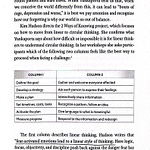Just a quick admin note: I’m going to take next week off from the newsletter so I can spend some quality time with my family, since I’ve been sort of half-resting/half-working while I’m in Florida and making this episode made me realize I need to take an actual break!
This is part 2 of a critical series on the concept of timeblindness, you can find part 1 here. Sources are embedded in the transcript below.
JESS: Did you know that underestimating the time it takes to complete a task is such a common human experience, it has its own name and wikipedia page?
It’s called The Planning Fallacy, and it’s the reason construction projects like bridges and buildings always run years behind schedule, why you turn your papers in late even though you had weeks to finish them, and, even why you think your romantic relationships will last longer than they do.
The Planning Fallacy isn’t just an underestimation of time, it’s a kind of unwavering optimism, even when you have information from past experiences that tells you it’s unrealistic. It was first written about in 1979 by Daniel Kahneman and Amos Tversky, and it’s a type of unconscious bias — something that affects the decisions we make without our awareness.
When I tell you that I fucking screamed when I learned about this, because if you spend any time on ADHDtok, you’d be convinced that chronically underestimating time and missing deadlines were just symptoms of executive dysfunction.
But researchers Roger Buehler, Dale Griffin, and Joanna Peetz describe it as:
a phenomenon rooted in daily life and daily experience, rich enough to keep our research group busy for the best part of two decades.
[groovy music interlude]
You’re listening to Sluggish, by me, Jesse Meadows. This is part 2 in a critical series on the concept of timeblindness. Last episode I brought up research by Russell Barkley himself that suggested ADHDers are just as good at estimating time durations as everyone else. My personal theory is that it’s the kind of time perception that requires more attention and working memory that can be hard for ADHDers, not necessarily just perceiving the passage of time in general.
This week, I’ve been combing through some social psychology papers to get a broader sense of studies on how humans perceive clock time, and it turns out that, um, everyone else is kind of bad at it, too?
TIKTOKER CLIP: Timeblindness is the inability to gauge the passing of time so it’s hard to actively manage it.
JESS: This is Sasha Hamdani, she’s a psychiatrist and a pretty popular ADHD influencer. Her tips for dealing with timeblindness include:
HAMDANI: Tip 1, acknowledge what your time sucks are. Tip 2, set alarms and sometimes it helps if you set different sounding alarms. Number 3, set a buffer, you’re always gonna need more time than you think you do.
JESS: That last thing she said, about needing a buffer? That’s another thing, like the planning fallacy, that’s so common it has its own name: Hofstadter’s Law.
It’s sort of a nerdy joke popular with programmers, because Hofstadter’s Law says everything takes longer than you think, even if you take into account Hofstadter’s Law, which means, you can add a buffer, but you’re still gonna need another buffer, and on and on forever and ever in a never-ending circle of buffer hell.
Estimating how long a task will take is just not something humans seem to be very good at. Kahneman says that’s because we’re very bad at predicting the future. We tend to make plans based on best-case scenarios, and when things inevitably go wrong, we end up late.
In his book, Thinking, Fast and Slow, he writes:
Errors of prediction are inevitable because the world is unpredictable.
Most of us view the world as more benign than it really is, our own attributes as more favorable than they truly are, and the goals we adopt as more achievable than they are likely to be.
Maybe it’s not that ADHDers can’t perceive time, but that we’re cursed by an extra dose of optimism? That’s not a bad thing — optimists give us hope and create art and keep us going — but optimists are more vulnerable to getting carried away.
My entire life is a series of big ideas I fell in love with and never finished because I failed to consider all the things that would get in the way, and when I didn’t finish a project when I thought I would, I chalked it up as a failure.
This cycle repeated so many times that I eventually started to see myself as some kind of irredeemable fuck-up, and it wasn’t until I decided to just accept that slowness was inevitable, even if I planned for it, and to see my deadlines as flexible and my projects as a spiral instead of a straight line, that I started to be able to finish things.
Even though I know all this now, I still chronically underestimate how long projects will take and how hard they’ll be, and I’m still late all the time. Alarms don’t work, lists don’t work, hanging a clock in every room and wearing a watch doesn’t work. All I can do is accept it.
And the more I dig into social psychology research, the less bad I feel about being chronically late, because it turns out these experiences are super common, and not just for regular people, but also for governments and city planners.
When I worked at a local Florida newspaper, some of the most common complaints I heard from residents were about how behind the town was on a massive road construction project that was constantly disrupting traffic. At the time, I thought this made the town look really bad, but it’s apparently just how these things go?
The Sydney Opera House was a decade behind schedule, the Denver Airport was 16 months behind and $2 billion dollars over budget, and they’re still working on the California High Speed Rail project, which was supposed to be done in 2020.
Kahneman says that public works projects may be particularly prone to the planning fallacy for political reasons — contractors want to sell their services by predicting they can get projects done fast, and governments want to curry favor with their constituents by pretending to be competent.
The more of an expert you are, the more likely you are to be overconfident and underestimate your predictions. Being realistic about uncertainty is more accurate, but it really isn’t cool, so people in powerful positions rarely do it. They just don’t get as much shit for being late all the time, because they’re in charge.
I think insecurity and shame can also make us underestimate time for ourselves, too. We want to be faster than we are, and this desire to avoid the slowness we are ashamed of plus our relentless optimism leads to unrealistic time goals.
We are not alone in these struggles with time. The term “timeblindness” doesn’t appear in any of the papers I read, but researchers do use a bunch of different terms to refer to it.
A 2018 review says:
“Variously termed “time shortage,” time crunch,” “time famine,” “time poverty,” “time pressure,” “time scarcity,” “time squeeze,” and “time stress”, the feeling of having too much to do and not enough time to do it is prevalent in modern society.”
YOUTUBER: I always feel like I’m running out of time…That’s timeblindness.
JESS: That soundbite definitely starts to sound a little weird when you consider the scale of this experience — the review goes on to say:
nearly half of Americans reported feeling that they do not have enough time to do what they want to do…approximately two thirds of Americans say that they always or sometimes feel rushed and half say that they almost never feel that they have time on their hands.
Women, people who are well-educated, and people who live in America feel the most time stressed. And do you know what the fastest growing demographic for ADHD diagnoses is? Adult women ages 24 to 36! Interesting!
I found a book called Overwhelmed by journalist Brigid Schulte that’s been very illuminating here. Schulte is a mother and a reporter at the Washington Post, and she wrote this book basically because a famous time researcher insisted she had 30 hours of leisure time in a week, and she was like, umm, no?
To her, time felt scarce and fragmented — “time confetti” is the metaphor she uses throughout the book.
Determined to disprove this guy, Schulte goes to a conference of time use researchers in Paris and discovers that she’s not alone, especially amongst parents, who struggle with something they call “role overload” — trying to do too many things at once, often switching between work roles and care roles, which intensifies the feeling of not having enough time.
“In session after session, time researchers from around the globe reported on rising levels of role overload…the sense that life is speeding up at a breakneck pace and that, though they yearn for it, many people can’t seem to find an elusive moment of peace.”
Even in those moments of peace, a lot of people are still struggling with anxious thoughts about all the things they need to do looping in their heads — technically, that’s leisure time, but researchers have started to call it “contaminated time” because you can’t really rest when you’re stuck thinking about everything on your to-do list.
Schulte interviews another researcher, Ann Burnett, who explains that busyness has become a mark of status for Americans. You know how people like to send those letters around the holidays that explain to their extended family what they’ve been doing all year?
Burnett collected those to study how people presented themselves, and she found that everyone was sort of, bragging about how busy they had been.
Burnett says:
“People are competing about being busy. It’s about showing status. That if you’re busy, you’re important. You’re leading a full and worthy life. There’s a real ‘busier than thou’ attitude, that if you’re not as busy as the Joneses, you’d better get cracking.”
When it comes to time perception, culture matters. A 2018 review of research on time shortage says:
the pace of life feels faster and time more scarce in cultures where time is viewed as a straight line along which one progresses and where individuals typically let an external clock dictate when tasks begin and end.
Sociologists have terms for these cultural differences in time perception. Monochronic cultures view time in a linear way. They tend to think of time as something that can be compartmentalized and scheduled in blocks, and they prioritize productivity and punctuality.
Polychronic cultures, on the other hand, view time in non-linear ways — it’s fluid and not something that can be controlled or segmented, so scheduling multiple things at once is common practice. They also prioritize relationships over productivity — being on time is less important than the quality of the time you’re spending with other people.
The US, the UK, Canada, and much of Europe are monochronic, whereas many countries in Asia, the Middle East, Central and South America, and Africa are polychronic, along with many Indigenous cultures around the world. Saying someone who struggles with monochronic, linear clock time is “timeblind” starts to sound pretty culturally insensitive when you consider that monochronic time is the preference of imperial powers.
That 2018 paper goes on to say:
life tends to feel less rushed and time more abundant in cultures where time is viewed as a circular system in which the same events repeat according to some cyclical pattern and where tasks are planned relative to other tasks and people transition from one to the next when they internally sense the former task is complete.
The concept of timeblindness doesn’t account for how much time perception is shaped by culture, and it sort of sounds like time stress is pretty inherent to viewing time in a linear way. But we’re not supposed to question that — it’s better if we just consider our internal clocks broken, and try hard to change them.
You see this attitude in videos where people give advice about dealing with timeblindness.
YOUTUBER 2: Buy and hang physical clocks around you in your environment. Having a clock in your line of sight, wherever you’re spending time, helps you add more friction to your time. Buy and wear a wristwatch. Some notes on this, get a neutral stylish watch you can wear with any outfit, and also get one that’s waterproof or water resistant. Also an analog clocks are much more helpful than digital clocks.
JESS: Are you in a constant battle with the clock? All you need is even more clocks! Wear a clock at all times! Get a clock that screams at you every minute! Tape a clock on the inside of your eyeballs!!! Do not, under any circumstances, look away!
The human struggle against clock time was actually recognized all the way back in 1914 by industrial psychologist and efficiency expert Lillian Moller Gilbreth, who wrote a book called The Psychology of Management:
the average workman does not know either his true efficiency or his true capacity. The experience of others has also gone to show that even the skilled workman has little or inaccurate knowledge of the amount of output that a good worker can achieve at his chosen vocation in a given time.
Basically, workers suck at estimating how long a task will take and how much they can get done. This kind of work was the early foundation for Industrial Psychology, a field that began with the goal to psychologically engineer worker productivity.
Because industrial psychs were employed by businesses, most of them were focused on helping management, not workers. Back in the 20’s, a management theorist named Elton Mayo told everyone that workers weren’t dissatisfied because of their conditions, but because of their quote “delusions of conspiracy and lunacy.”
It was maladjustment in the worker, not the inhumanity of the work. This idea was a big part of the mental hygiene movement that got popular around that time, which focused on identifying and treating maladjustment in children in order to prevent future mental illness, and it was used to discredit worker unions, too.
There was one industrial psychologist, Arthur Kornhauser, who was more interested in worker’s mental well-being than his peers. He conducted research to help unions be more effective, but he was mostly ignored for a really long time.
In the 1920s, a series of famous industrial psych studies identified something called The Hawthorne Effect. Elton Mayo found that workers were more productive when their managers paid attention to them, and I can’t help but think of all the times we hear that kids with ADHD focus better when their teachers are able to spend one-on-one time with them. Aren’t teachers sort of like kid’s managers?
Another study at the time found that people were more productive when they worked in a group and got to choose their own coworkers, which is interesting, considering the explosion of “body doubling” on ADHDtok.
TIKTOKER: Today we’re gonna talk about one of the best ways to get shit done if you have ADHD. It’s called body doubling…put very simply, body doubling is just having somebody sit with you and hang out with you while you do the work that you need to get done…
The media has mostly treated this as some kind of new, strange phenomenon that mysteriously helps ADHDers focus, and I guess you could argue that body double livestreams are a new form of co-working, but it also sounds like a rebrand of The Hawthorne Effect that was identified a hundred years ago by industrial psychologists.
We’re still trying to place the blame on workers, and ignore the effects of management and clock time. In a 1999 study called The Time Famine: Toward a Sociology of Work Time, Leslie A. Perlow followed a group of engineers to figure out why they always seemed to be late for their deadlines.
She found that it was much more of a cultural problem than a personal one, and she named it “The Vicious Work-Time Cycle”:
The pressure to get the product to market started the cycle spinning. There was never enough time to prepare for deadlines. Each deadline was confronted only when it was around the corner and had become a crisis. While engineers were busy addressing the most recent crisis, the work that they had intended to do on any given day was delayed until it, too, was perceived as a crisis. Because engineers continuously confronted crises, they had little time to invest in future work. Even when engineers attempted to plan ahead, they lacked their managers' attention. Engineers' ability to prevent future crises was therefore negated. As a result, each day brought a new set of crises.
The engineers were basically at the mercy of their managers’ whims, having to drop everything they were working on to deal with the day’s crisis, which made them chronically late on their own deadlines. They didn’t have control, even when they tried to prepare, and this trapped them in an endless cycle of time stress.
Remember what Barkley said, about ADHDers and their never-ending crises?
BARKLEY: And so their life is a series of one crisis after another, all of which were avoidable because people prepared, and they didn’t.
JESS: Barkley falls prey to the planning fallacy, assuming that life is predictable, that you can always prepare for the future, that you are in control.
None of that is really true, but it’s a nice story, a narrative that a lot of people rely on, especially those in power over others. But as Kahneman writes, these narratives are fallacies, too:
The explanatory stories that people find compelling are simple; are concrete rather than abstract; assign a larger role to talent, stupidity, and intentions than to luck; and focus on a few striking events that happened rather than on the countless events that failed to happen.
Our comforting conviction that the world makes sense rests on a secure foundation: our almost unlimited ability to ignore our ignorance.
He calls this “What You See Is All There Is”. You don’t know what you don’t know, and so you can’t ever really plan for the future, because the future is unknowable. All of us are just making our best guesses in a world that’s spinning at a breakneck speed, trying to find stories that explain the chaos.
Maybe this doesn’t comfort you, but it helps me to know that I’m living through phenomena much bigger than myself, that I’m not unique in my time stress, but actually, having a very common experience. And maybe, if we can recognize how common that experience is, we can get together and change it.












